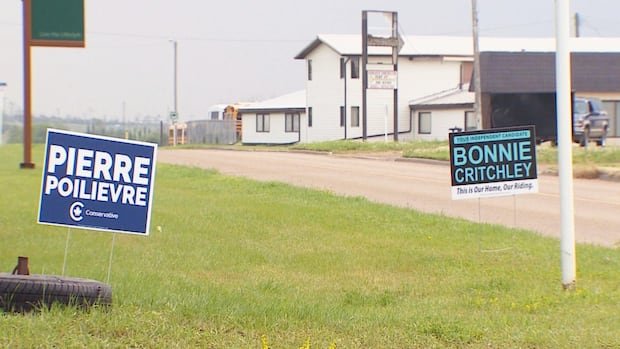More than 200 individuals, primarily linked to a coalition advocating for electoral reform, have submitted their candidacy for an upcoming federal byelection scheduled for next month. This figure significantly surpasses the previous record for candidates on a single ballot.
The decision to enter the race follows the resignation of former Alberta MP Damien Kurek from his post in Battle River-Crowfoot, allowing Conservative Leader Pierre Poilievre an opportunity to return to the House of Commons after losing his long-held Carleton seat in the recent general election.
Organized by the Longest Ballot Committee, the surge in candidates is part of a concerted effort to drive electoral reform through increased participation in byelections. The committee aims to establish a citizens’ assembly to oversee electoral reform, arguing that political parties are hesitant to make the government more reflective of the electorate.
Expressing their stance, the organizers emphasized the necessity for Members of Parliament to step aside and delegate decisions on election laws to an independent, non-partisan body like a citizens’ assembly. As of the latest count on Sunday evening, a total of 209 candidates had registered for the Battle River-Crowfoot byelection, surpassing the committee’s initial target of 200.
This unprecedented number of candidates exceeds the previous record of 91, observed in both the LaSalle-Emard-Verdun byelection last September and the Carleton general election. The abundance of candidates has led to the creation of longer ballots, causing delays in the vote counting process and confusing some voters.
In response to the situation, Elections Canada stated its commitment to implementing measures to mitigate disruptions caused by the extended ballots. Various strategies, including early counting and additional staffing, are being considered to streamline the process after the nomination deadline.
Although the Longest Ballot Committee has focused on elections featuring Poilievre, it has also targeted traditionally Liberal strongholds like Toronto-St. Paul’s and LaSalle-Emard-Verdun in 2024. The group’s advocacy for expansive ballots has prompted calls for reforms, with Poilievre himself labeling the protests as a “scam.”
Poilievre recently urged government House leader Steven MacKinnon to introduce legislation amending Canada’s election rules to address the issue of lengthy ballots. The Liberals have expressed willingness to collaborate on potential changes in response to the concerns raised.
During the previous Parliamentary session, MPs deliberated on legislation that could have incorporated some of the proposed changes, particularly restricting electors to signing only one nomination form, a practice contrary to the advocates’ approach of gathering multiple signatures.
Head of Elections Canada, Stéphane Perrault, recommended imposing penalties on individuals who engage in or promote the signing of multiple nomination papers to inflate the number of candidates on a ballot. However, the specifics of these penalties were not disclosed.
The deadline for candidate registration in Battle River-Crowfoot is set for Monday, with the election scheduled to take place on August 18.

